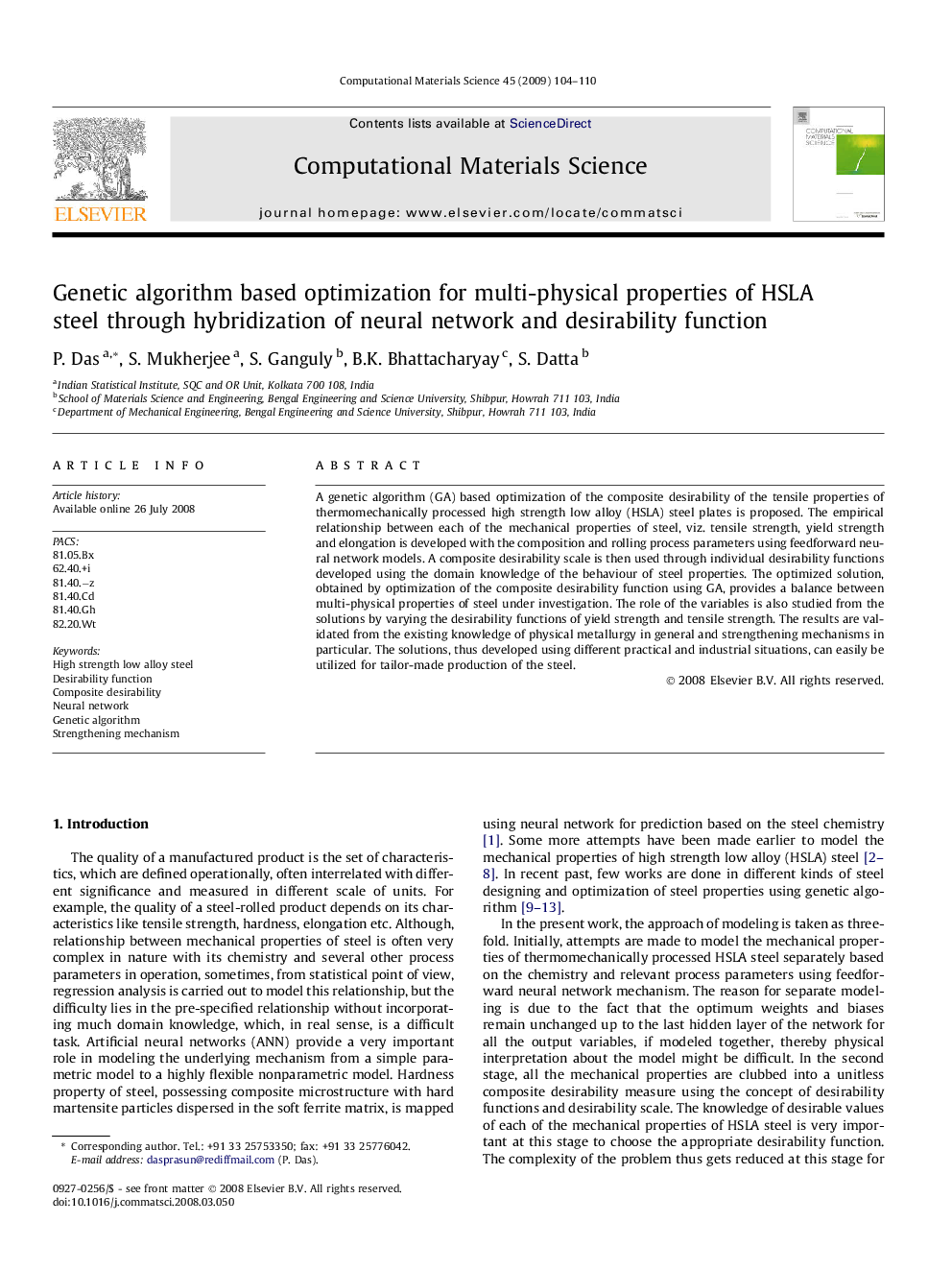| Article ID | Journal | Published Year | Pages | File Type |
|---|---|---|---|---|
| 1563695 | Computational Materials Science | 2009 | 7 Pages |
A genetic algorithm (GA) based optimization of the composite desirability of the tensile properties of thermomechanically processed high strength low alloy (HSLA) steel plates is proposed. The empirical relationship between each of the mechanical properties of steel, viz. tensile strength, yield strength and elongation is developed with the composition and rolling process parameters using feedforward neural network models. A composite desirability scale is then used through individual desirability functions developed using the domain knowledge of the behaviour of steel properties. The optimized solution, obtained by optimization of the composite desirability function using GA, provides a balance between multi-physical properties of steel under investigation. The role of the variables is also studied from the solutions by varying the desirability functions of yield strength and tensile strength. The results are validated from the existing knowledge of physical metallurgy in general and strengthening mechanisms in particular. The solutions, thus developed using different practical and industrial situations, can easily be utilized for tailor-made production of the steel.
